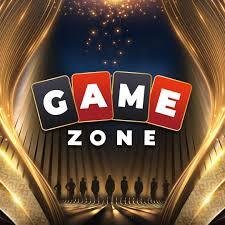Introduction
Whether you’ve seen the name as a shop window, a website, a magazine, or the neon sign above a local arcade, GameZone is a label that’s been used for many things in gaming culture. This article explains the common meanings of the term, why each matters to gamers today, and practical tips for choosing the right GameZone experience whether offline or online.
What “GameZone” can mean
“GameZone” is not one single company or product. It’s a popular name used around the world for different gaming-related things. The most common uses are:
- Physical game stores and arcades — independent shops that sell and trade games, consoles and accessories, or operate arcade/VR spaces.
- Online stores and distribution platforms — websites that sell digital or physical games.
- Gaming magazines and publications — historically, Game Zone was the title of gaming magazines in the early 1990s and later split into Sega/Nintendo-focused publications.
- Blockchain and niche gaming projects — some newer projects use the GameZone name for NFT/crypto gaming hubs and launchpads.
- Local entertainment centers — “game zone” is also a generic phrase used for local entertainment centers, internet cafes, and gaming lounges.
Knowing which “GameZone” you’re dealing with helps you set expectations — a retro-magazine article is very different from a VR lounge or a crypto gaming hub.
Why the label matters
Using the same recognizable name gives different businesses instant relevance to gamers. A GameZone store or site signals: gaming-focused inventory, staff with gaming knowledge, and often community events like tournaments or trade nights. For retro collectors and local gamers, these places can be hubs for social play and hard-to-find titles. For online platforms, the name can suggest a dedicated storefront or marketplace rather than a general retailer. Some modern projects also use the name to signal a focus on blockchain or NFT gaming communities.
Choosing the right GameZone for your needs
Here’s a quick guide to matching the type of GameZone to what you want:
- Buying new or pre-owned games: Look for GameZone retailers that list inventory clearly and offer trade or sell policies. Local stores are great for trades and quick advice; online stores provide a wider selection.
- Arcade / VR / in-person play: Confirm the equipment, hygiene and safety policies, pricing by hour or session, and whether they host tournaments. Ask about age restrictions if you’re bringing kids.
- Collecting retro titles / magazines: If you’re interested in retro gaming culture, some Game Zone magazines from the early 1990s are collectible and offer a snapshot of gaming history.
- Blockchain / NFT gaming hubs: These GameZone-type projects can offer token incentives, marketplaces, and launchpads. They’re speculative and fast-moving, so research carefully.
Safety and trust — what to check
Because “GameZone” can mean many things, make a habit of checking:
- Reputation and reviews: Look for customer feedback on third-party platforms or community forums.
- Clear contact information: A trustworthy GameZone provides an address, phone, and clear return or trade policies.
- Licensing and legal compliance: For arcades and gaming centers, confirm local permits and safety standards. For gambling or casino-branded sites, check licensing info carefully.
- Secure payments and privacy: On any online GameZone, payments should occur over secure platforms with transparent privacy policies.
Tips to get the most from a GameZone
- Ask staff for recommendations they can point to underrated games or best-value bundles.
- Visit on off-peak hours if you want relaxed browsing or uninterrupted play.
- Follow local GameZones on social media to catch trade-in deals, launch events, and tournaments.
- Inspect pre-owned items closely before buying to avoid later problems.
- When using online GameZones, check marketplace terms for refunds and whether you’re buying digital keys or physical copies.
The future of GameZone-style places
GameZone-style entities will likely continue evolving along two tracks: (1) physical community hubs that emphasize social play, events, and collectibles; and (2) digital hubs that combine storefronts with modern trends like indie showcases, streaming tie-ins, and blockchain gaming features. The most successful GameZones will be those that balance community trust, clear policies, and great customer service.
Quick summary
- GameZone is a flexible name used for stores, arcades, magazines, online platforms, and blockchain projects.
- Always verify which GameZone you’re dealing with by checking reviews, contact details, and policies.
- Choose the right GameZone by matching its offerings retail, play space, or online services to your needs.
